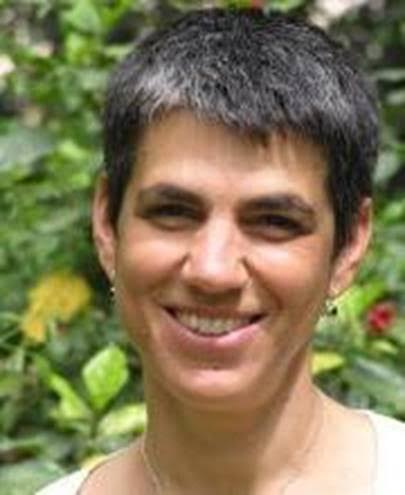








חורב, ש. (עורך) (ינואר 2018) הערכה אסטרטגית ימית רבתי לישראל 2017/2018
חורב, שאול (עורך ראשי), (ינואר 2108). הערכה אסטרטגית ימית רבתי לישראל 2017/18. מרכז חיפה למחקרי מדיניות ואסטרטגיה ימית
היעדר אסטרטגיה הוא אבן נגף משמעותית בתיכלול האינטרסים השונים בתהליכי התכנון, המשפט והסביבה באזורים הימיים, וככזה יש לו השלכות כלכליות חמורות. גם בהיעדר אסטרטגיה לאומית רבתי, נדרש וניתן ליצור אסטרטגיה ימית רבתי, שתשמש בסיס איתן לשגשוג המרחב הימי ברמה הביטחונית והכלכלית כאחת, תחבר בין אינטרסים שונים ותתעדף ביניהם על סמך ראייה ארוכת טווח, שמטרה להגשים את היעדים של מדינת ישראל למען הדורות הבאים. מרכז חיפה למחקרי מדיניות ואסטרטגיה ימית, גיבש מתודולוגיה שתאפשר את יצירתה של אסטרטגיה ימית רבתי למדינת ישראל.
Kirschenbaum, Avi
Avi Kirschenbaum (Technion, retired) - Risk Assessment and Management
Professor Kirschenbaum is a world renowned expert in the field of disaster risk management, transportation security and a popular lecturer, author and advisor to governments, public institutions and security-safety related companies. He has appeared as a keynote speaker at international conferences.
He is a Senior Research Fellow at the Neaman Institute for National Policy Research at the Technion Israel Institute of Technology and the initiator and coordinator of The BEMOSA consortium, (Behavioral Modeling for Security in Airports) a 15 partner Europe-wide research project aimed at improving security in airports. He also is a participating partner in PsyCris (Psycho-Social Support in Crisis Management) focusing on contingency planning, an EU project dealing with mass disasters and its psychosocial consequences as well as senior research consultant to Israel's "Making Cities Resilient" program. He is affiliated with the Haifa University graduate program for Emergency Management and the founder and CEO of Kirschenbaum Consulting.
As well as authoring dozens of scientific journal articles and book chapters, he has served on the editorial boards of leading international journals, on executive boards of International Research Committees, international academic associations and past director of research to the Population Behavior Section, Israel’s Northern region Home Front Command. He was involved in a Canadian Department of Defense-funded project and is now co-heading an Israel Ministry of Science research agenda on preparing populations for earthquakes.
Fischhendler, I. (2017). The Use of Intangible Benefits for Promoting Contested Policies: The Case of Geopolitical Benefits and the Israeli Gas Policy.
Fischhendler, I. (2017). The Use of Intangible Benefits for Promoting Contested Policies: The Case of Geopolitical Benefits and the Israeli Gas Policy. Geopolitics, 1-25.
Abstract:
The evaluation of many contested projects and policies often includes intangible benefits. Geopolitics represents one type of intangible benefit. Despite a few examples on the use of geopolitics to promote contested projects, there is a gap in the literature on how geopolitical argumentation is constructed for the purpose of promoting resource-based policies. Hence, the aim of this study is to use an Israeli case study to examine how geopolitical constructs are used to promote competing energy policies concerning recent gas discoveries and to provide rudimentary insights on the implications for policy making. It was found that the geopolitical rationale was an appealing rhetorical device for all players as it is both unquantifiable and hence difficult to disprove and is rooted in the Israeli societal context. As a result, coalitions built their own geopolitical rationales, each with its own rhetorical tools. These literary tools were often embedded in narratives of power and geographical language with emotional resonance. Yet, the Israeli case demonstrates that geopolitical constructs come at a detrimental price as they promote censorship and exclusion of the public from the process.
Multihazard Mitigation Council (2015). Developing Pre-Disaster Resilience Based on Public and Private Incentivization
Multihazard Mitigation Council & Council on Finance, Insurance and Real Estate (2015). Developing pre-disaster resilience based on public and private incentivization. Washington, DC
Developing pre-disaster resilience based on public and private incentivization
Resilience has come to occupy a place in public policy and programs across the United States. Yet, even in the face of growing losses and the deleterious effects of natural disasters, the nation’s capacity and appetite is waning for continued funding of federal and state pre- and postdisaster mitigation efforts to create resilience. A new approach is necessary—one focused on capturing all of the potential incentives provided by both the public and private sectors for preand post-hazard investment. The most cost-effective manner to achieve resilience is through a holistic and integrated set of public, private, and hybrid programs based on capturing opportunities available through mortgages and loans; insurance; finance; tax incentives and credits; grants; regulations; and enhanced building codes and their application. This focus on private/public-sector opportunities to induce corrective action is called “incentivization.”
This paper provides a catalogue of existing programs for different hazards that private and public-sector stakeholders can evaluate, and then modify or expand to develop incentives.
Morin, Efrat
Efrat Morin (Hebrew University) - Environment
Efrat Morin is an Associate Professor at the Institute of Earth Sciences in the Hebrew University of Jerusalem and the Head of the Hydrometeorology Lab. Her research focuses, among other, in: Rain storms and floods, the atmospheric and surface conditions leading to flooding events; Rainfall analysis based on rain gauges, radar and satellite data to explore extreme events and to better understand storm properties that have a high flooding potential for a given type and conditions of a catchment; Hydrological modeling for flash flood prediction.
Ben-Haim, Yakov

Prof. Yakov Ben-Haim initiated and developed info-gap decision theory for modeling and managing severe uncertainty. Info-gap theory has impacted the fundamental understanding of uncertainty in human affairs, and is applied in decision making by scholars and practitioners around the world in engineering, biological conservation, economics, project management, climate change, natural hazard response, national security, medicine, and other areas (see info-gap.com). He has been a visiting scholar in many countries and has lectured at universities, technological and medical research institutions, public utilities and central banks. He has published more than 100 articles and 5 books. He is a professor of mechanical engineering and holds the Yitzhak Moda'i Chair in Technology and Economics at the Technion - Israel Institute of Technology.
Contact: This email address is being protected from spambots. You need JavaScript enabled to view it.
Further information: http://info-gap.com
